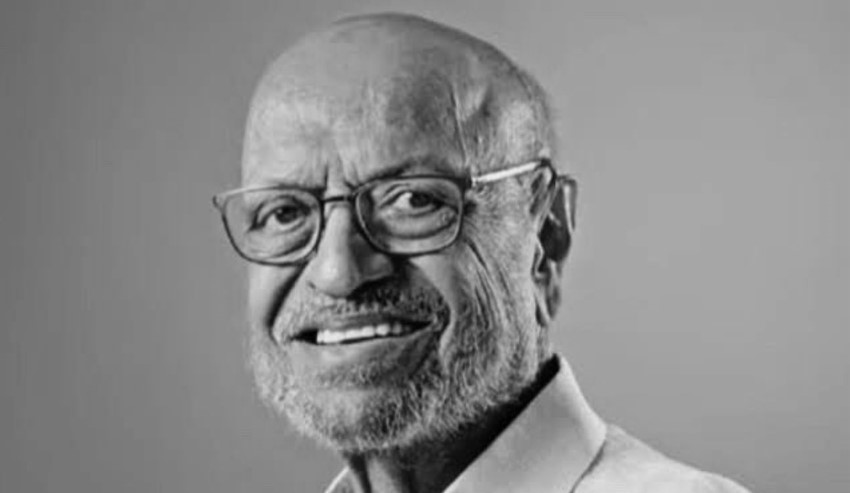December 24, 2024: Shyam Benegal, the legendary director and screenwriter who revolutionized Indian cinema, passed away at the age of 90, leaving behind an indelible legacy that spans over five decades. Known for his profound social narratives and cinematic brilliance, Benegal reshaped how India saw itself on the silver screen. Through films that spoke to the heart of societal issues, his contributions were not just artistic, but transformative for Indian cinema.
The Prime Minister of India, Narendra Modi, paid tribute to the filmmaker, stating, “Deeply saddened by the passing of Shri Shyam Benegal Ji, whose storytelling had a profound impact on Indian cinema. His works will continue to be admired by people from different walks of life. Condolences to his family and admirers. Om Shanti.”
A defining force behind the “New Wave” of Indian cinema, Benegal’s body of work, including masterpieces such as Ankur, Manthan, Nishant, and Bhumika, brought to light complex societal themes like rural development, class struggles, and women’s rights. His films went beyond conventional storytelling, inviting viewers to rethink the very fabric of Indian society.
Benegal was not only a director; he was a visionary who gave voice to the marginalized, tackling issues like poverty, gender inequality, and social injustice. His humanistic approach to storytelling became legendary, with his ability to elicit powerful performances from actors, shaping the careers of stars like Shabana Azmi and Smita Patil.
Shyam Benegal A Director Who Changed the Course of Indian Cinema
Director Shekhar Kapoor, deeply moved by Shyam Benegal‘s passing, recalled him as a “friend and guide” who “changed the direction of Indian cinema.” Kapoor further praised Benegal’s work, highlighting films like Ankur and Manthan that redefined the Indian cinematic landscape.
Actor Kamal Haasan, in his tribute, expressed, “India has lost the most humane storyteller of our time, and I’ve lost a guru. Through his lens, Shyam Benegal brought real India to the screen, making us love the ordinary while tackling profound social subjects.”
Anupam Kher, recalling his first meeting with Benegal on the set of Mandi, described him as a “messiah for actors, writers, and technicians of alternative cinema in India.” Kher fondly remembered how Benegal saw potential in him, encouraging him to wait for the right role—a testament to Benegal’s generosity and belief in the future of his colleagues.
Benegal’s Cinematic Masterpieces: A Glimpse Into His Filmography
Shyam Benegal’s work is synonymous with realism, social engagement, and timeless storytelling. His films were a reflection of society and often challenged norms, portraying the lives of everyday people in the most honest and empathetic ways. Here’s a look at some of his most influential films:
- Ankur (1974)
Benegal’s directorial debut, Ankur, is a landmark film that captured the stark realities of rural India. It explored issues of caste, feudalism, and power dynamics, marking the beginning of India’s “New Wave” cinema. - Nishant (1975)
A raw narrative about rural injustice, Nishant explored themes of sexual exploitation and societal oppression, solidifying Benegal’s reputation for tackling controversial issues head-on. - Manthan (1976)
A film inspired by the Amul cooperative movement, Manthan highlighted the struggles of farmers fighting for their rights, showcasing Benegal’s commitment to rural communities and social reform. - Bhumika (1977)
Featuring Smita Patil in a career-defining role, Bhumika explored the complexities of a woman’s life in a patriarchal society, illustrating Benegal’s profound empathy for female agency and identity. - Katha (1983)
A departure from his more socially intense works, Katha examined loneliness, self-worth, and the intricacies of human emotions, marking Benegal’s versatility as a storyteller. - Mandi (1983)
A satire on the lives of women in a brothel, Mandi was a fearless exploration of gender, society, and the power dynamics of women on the margins. - Junoon (1978)
Set during the First War of Indian Independence, Junoon combined historical drama and romance, exploring love and identity amidst rebellion. - Trikal (1985)
A nostalgic exploration of Goa’s colonial past, Trikal delved into post-colonial identity and the cultural disintegration caused by colonialism. - Zubeidaa (2001)
A biographical drama about a woman’s tragic pursuit of fame and stardom, Zubeidaa examined the darker side of ambition and identity in the film industry. - Welcome to Sajjanpur (2008)
A lighthearted yet insightful satire, Welcome to Sajjanpur depicted a small-town writer helping villagers communicate, showcasing Benegal’s nuanced take on rural life and communication.
A Legacy That Continues to Inspire
Shyam Benegal’s films transcended entertainment; they were deeply introspective commentaries on the society he lived in. His unique ability to marry social relevance with cinematic artistry made him one of India’s most respected filmmakers. Benegal’s impact on the industry is immeasurable, and his work continues to serve as a beacon of inspiration for filmmakers, actors, and writers today.
As we say goodbye to one of the most influential figures in Indian cinema, we remember his unwavering commitment to storytelling, his advocacy for humanism, and the lasting legacy he has left behind. Farewell, Shyam Benegal—your cinematic vision and your inspiration will continue to live on, shaping generations of filmmakers and audiences alike.


